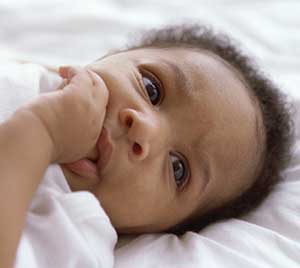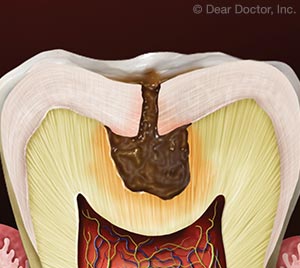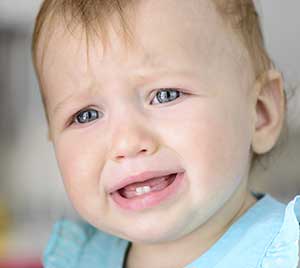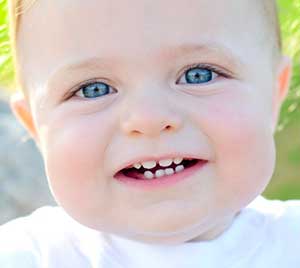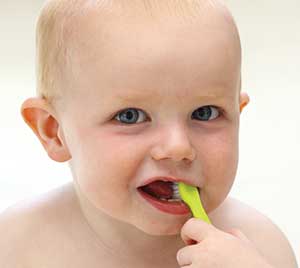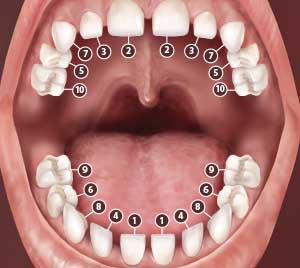When is it time for your child to stop?
Oral Health for Infants (age 0-2)
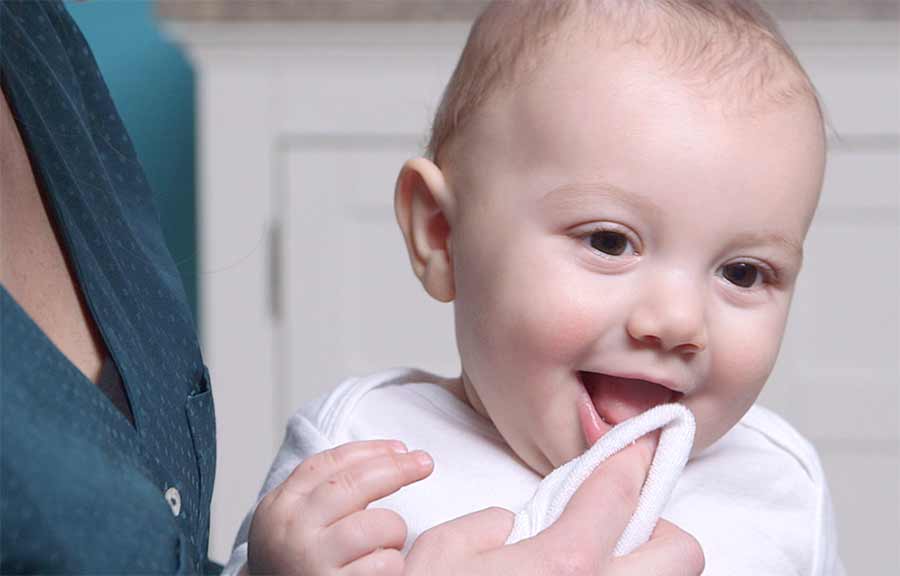
In the first two years of life, your child will go from a barely conscious little bundle who sleeps most of the time (though you won’t) to a bundle of energy with a definite personality. It’s a time of rapid growth and development, during which many exciting milestones will be reached. One of those is the development of baby’s first set of teeth.
The first tooth will usually appear between 6 and 9 months of age, though a range of 3-12 months is possible. Teething discomfort can sometimes accompany tooth eruption, but there are various remedies you can use to soothe your child’s sore mouth. Chilled teething rings or cold, wet washcloths to gnaw on often provide welcome relief.
As soon as the first tooth arrives, it’s time to actively begin safeguarding your child’s oral health. There are three basic components to this at any age: a good oral hygiene routine at home; a nutritious diet low in sugar; and regular checkups at the dentist’s office. Those checkups should begin at age 1. Though that may sound young, there’s a lot your baby’s dentist can do to keep your child free of oral health problems now and into the future.
Your job is to clean your baby’s teeth daily with a soft children’s toothbrush and a thin smear of fluoride toothpaste, and to make sure sugary liquids (juice especially, but even formula or breast milk) are not allowed to pool in baby’s mouth during sleep. Giving your child only water in a bedtime bottle will do a lot towards preventing tooth decay. It’s also important to provide your child with a safe, child-proof environment that reduces risk of dental and other injuries.
Featured Topics
The world’s most widespread disease.
How to relieve the discomfort.
What’s the right age to start seeing the dentist?
